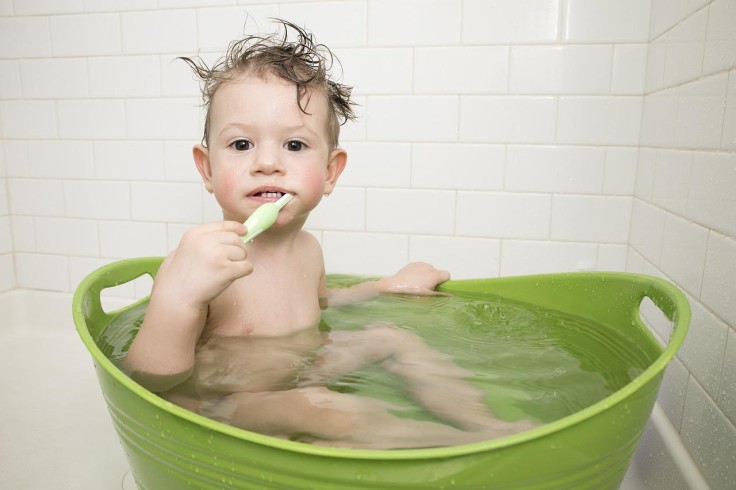
Children who sleep with a bottle of milk at night are highly susceptible to developing baby bottlemouth syndrome, a type of tooth decay caused by constant exposure to milk and other sugary liquids.
Over at TikTok, thekidzdentist presented one of the worst cases of baby bottlemouth syndrome in a toddler whose teeth have been so severely decayed that he needed to have silver crowns. The dentist explained that while he was able to save this baby's teeth, the situation is far from being a laughing matter after some of the commenters said that the kid looks too cool because he has "grills," a very popular decorative element for the teeth among hip-hop artists.
The dentist educated this followers on the problems of baby bottlemouth syndrome, which mainly causes pain and loss of teeth structure in young children. Some babies even develop infections so they need a teeth extraction at such an early age.
@thekidzdentist #greenscreenvideo Replying to @mathiashas0braincells ♬ Aesthetic - Tollan Kim
Read Also: Dentists Explain How Child Burned His Tongue From Eating Popular Sour Candy
Importance of preventing baby bottlemouth syndrome
Baby bottlemouth syndrome is also known as nursing caries and may be common among kids under 2 years old. However, even babies who breastfeed may also be at risk of having tooth decay if they sleep while nursing, according to Boston Children's Hospital.
Dr. Man Wai Ng, the hospital's chief dentist said that, as much as possible, babies should only be given water when it's time for bed. If the child has fallen asleep, the bottle must be removed if he's not sucking on it anymore.
Every child experiences baby bottlemouth syndrome differently but the most common indicators include teeth with white or brown spots, red gums and an irritated mouth.
Baby teeth will eventually come off to make room for the permanent teeth by the time the child turns 6 years old. However, good oral care and preventing tooth decay starts early because babies need teeth as they learn to chew, speak and smile.
The first set of teeth also holds the space in the jaw for the permanent tooth's growth. If a baby loses his teeth a lot earlier, then his permanent tooth may drift in the gums, leading to uneven, crooked or crowded growth.
Taking care of baby's teeth
To ensure that the baby's teeth won't decay, parents or caregivers will need to clean the baby's mouth regularly with a moist gauze pad or a washcloth. According to the American Dental Association, tooth decay can occur as soon as the first teeth appear at around 6 months old.
Children may start learning how to brush their teeth when they are around 2 years old. Parents need to supervise this routine twice a day and make sure that the child uses the right amount of toothpaste and moves the toothbrush inside the mouth properly.
Continue to guide the child until he learns to spit and rinse without needing any assistance. Usually, children can brush their teeth by themselves at 6 years old.
Related Article: 5 Healthy Ways Parents Can Prevent Dental Issues in Kids